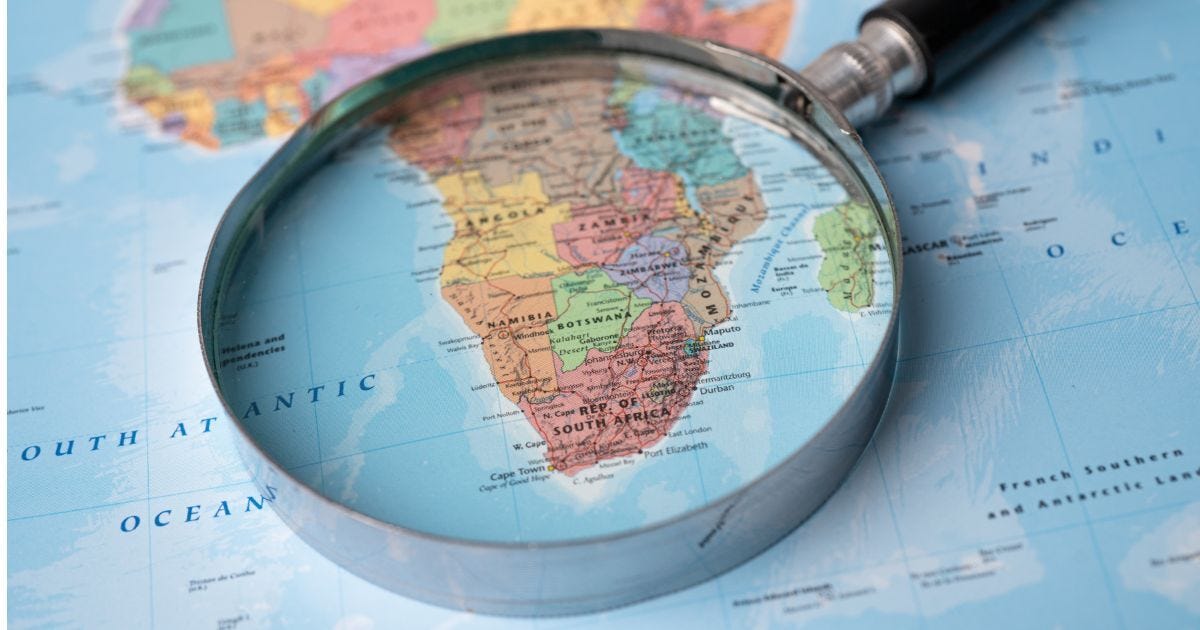The US Is Losing Africa—And China Is Ready to Take Over
The unfolding diplomatic situation between the US and South Africa, shows a cultural divide in how these nations approach international relations.
The unfolding diplomatic situation between the United States and South Africa shows a disconnect in how these nations approach international relations.
What's Happening
US cuts aid to South Africa without discussion
South Africa is unable to get direct communication with the US
China pledges support to South Africa
South Africa maintains G20 agenda despite US objections
US absence from G20 foreign ministers meeting
While South Africa seeks dialogue, America acts decisively, and China steps into the widening gap. What path leads to better understanding? It all depends on your Cultural Perspective.
The Perspective
With years of analyzing international relations, I've identified three distinct cultural patterns that show why these nations struggle to connect. When South Africa's foreign minister Lamola describes unanswered attempts at communication while America implements unilateral decisions, we're watching more than policy disagreements - we're seeing different approaches to power, relationships, and communication playing out on the global stage.
This cultural misalignment threatens America's influence in Africa at a crucial moment when global powers actively compete for partnerships on the continent. While China demonstrates familiarity with African diplomatic preferences, America's approach is driving historic allies away from America and to China.
Why It Matters
These cultural differences matter because they're transforming the future of international relationships. When America cuts aid without discussion, they're not just making a policy decision, they're sending unintended messages about how they view partnerships with African nations. And that message is clear - America first at the expense of its partners and allies. Who will step in to fill the American void - China is more than happy to take its place.
This matters because South Africa controls the Cape of Good Hope, a major shipping choke point. It also provides the United States with access to mineral resources vital for the U.S. steel industry.
Each country's diplomatic style emerges from its unique cultural values and historical experiences. This doesn't suggest either approach is inherently better - they're different ways of conducting international relations, each effective in particular contexts.
What It Means
The ending of American-South African cooperation will have long lasting influence on global stability.
First, a fundamental mismatch in communication styles threatens America's effectiveness in Africa. When America acts decisively without dialogue while South Africa seeks consultation, it creates more than just frustration - it opens diplomatic spaces that competitors like China can fill. Lamola's statement about waiting for "feedback and response" while China pledges support reveals how this communication gap could accelerate America's declining influence in the region.
The second pattern emerges in their different approaches to power relationships, which risks undermining international order. America's direct aid cut reflects America’s movement to hierarchical and dictatorial leadership. South Africa continues to operate with the traditional diplomatic power structure of equality and consultation. South Africa’s persistent attempts at dialogue signal a changing world where emerging powers expect more equal partnerships. Lamola's observation that "we have to face reality" suggests that nations may increasingly seek alternatives to American leadership if they feel their sovereignty isn't respected.
A third crucial difference appears in their approaches to group dynamics, which could fragment cooperation. South Africa's emphasis on collective decision-making, shown in their G20 theme of "Solidarity, Equality, Sustainability," represents the global standard of multilateral solutions. America's unilateral action, by contrast, weakens international institutions and norms. When Lamola notes that "all G20 nations had previously agreed," he's highlighting how American exceptionalism might push other nations to form alternative diplomatic blocs and institutions that exclude U.S. influence.
What's Next
Cultural misunderstandings will continue to mount unless nations begin to understand different diplomatic cultural styles. America's direct approach will continue to create friction with South Africa's preference for consultation and collective decision-making. Watch for South Africa to strengthen ties with partners who better align with their diplomatic style - particularly China, whose culture is more similar to South Africa’s and has already shown willingness to engage on South African terms.
The future of this relationship depends on more than just policy alignment - it requires America to adapt its diplomatic approach to better connect with African partners, while South Africa finds ways to bridge the communication gap with Western allies. Success will come from understanding that effective diplomacy means speaking each other's cultural language.





